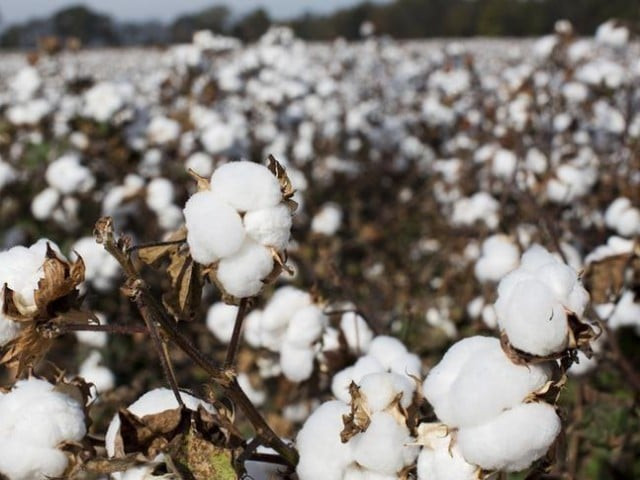PTI govt, stakeholders at odds over cotton support price
Differences also persist on giving tax incentives to agriculture sector

Differences also persist on giving tax incentives to agriculture sector. PHOTO: REUTERS
Various stakeholders led by Tareen met with Adviser to Prime Minister on Finance Dr Abdul Hafeez Shaikh on Thursday at his office and discussed ways for ensuring competitive prices for the cotton farmers for their produce in the coming season.
However, no agreement could be reached after Shaikh told them that the finance ministry did not have fiscal space to give tax incentives and allocate funds for procurement of cotton from the farmers, according to the officials who attended the meeting.
Shaikh is said to have told the meeting participants that any fiscal relief provided to the cotton growers will come at the expense of others, as the government did not have fiscal space, said the officials.
The Ministry of National Food Security and Research had proposed the minimum price of cotton at Rs4,000 per mound and to purchase 500,000 bales from the farmers. However, the quasi-fiscal operations like procurement of wheat and sugarcane increased the liabilities of the federal and provincial governments. The International Monetary Fund (IMF) also wants to put a full stop to quasi-fiscal operations.
The representative of All Pakistan Textile Mills Association (Aptma) - the main buyer of locally produced cotton - opposed the proposal of Rs4,000 minimum support price. Instead, he asked to link the price with the international market.
Shaikh is said to be against the idea of fixing the support prices, which create distortions in the market. Due to minimum guaranteed prices for wheat and sugarcane, the cultivation areas of cotton and pulses have greatly reduced and the country meets its needs by importing these commodities.
The ginners also demanded that they should be taxed under a final income tax regime but the FBR chairman did not agree to the proposal.
The officials said that Tareen urged the stakeholders to reach an agreement at the earliest.
The matter will now be taken up at the Parliamentary Committee on Agriculture forum, which is chaired by National Assembly Speaker Asad Qaiser.
The government was fully aware of the difficulties being faced by cotton growers in getting better prices which not only offset their cost of production but also provide them with incentives to use more inputs and increase the crop area for enhanced productivity, the finance ministry handout quoted Shaikh as saying.
Shaikh added that the government was actively considering various options and hopefully we have an arrangement which addresses the concerns of cotton growers and helps them fetch good prices for their produce.
Last month, the Economic Coordination Committee (ECC) of the Cabinet had constituted a Price Review Committee, headed by adviser ministry of commerce and textile, to review and suggest the indicative price and other measures to be taken in case of abnormal fluctuations in the cotton prices.
Last year, the cotton production was 10.77 million bales against a national requirement of around 13-14 million bales. The decline in production of cotton has been attributed to low returns to growers, higher cost of production and decline in the price of cotton at a critical time, and low yield and attack of virus and pests.
Shaikh claimed that there was an unprecedented focus on the growth of agriculture sector by the current government, which not only merely saw agriculture as providing the main pivot to the growth of the economy but also allocated vast sums for its further growth.
He said that the agriculture sector is expected to achieve a 3.3% growth rate this year.
The adviser said that last week the government-approved projects worth Rs250 billion for the uplift of agriculture sector with a focus on enhancing crop productivity and improving the means and resources for better farming.
Shaikh asked Aptma, Pakistan Cotton Ginners Association (PCGA) and stakeholders to hold meetings with the officials of FBR and the commerce ministry to discuss their issues and finalise realistic proposals within the next few days to help the government take a decision that could address the concerns of all stakeholders, particularly the cotton growers in getting better prices in the upcoming season, according to the finance ministry.



















COMMENTS
Comments are moderated and generally will be posted if they are on-topic and not abusive.
For more information, please see our Comments FAQ